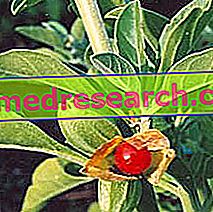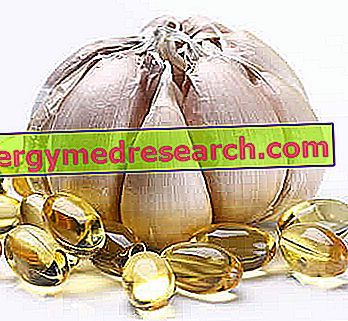
Scientific name
Withania somnifera
Family
Solanaceae
Origin
India
Synonyms
Indian Ginseng, ashwagandha
Used Parts
Drug represented by the roots and leaves
Chemical constituents
- Withanolides (steroid lactones);
- Withaferina A;
- Alkaloids (withanina);
- Nicotine;
- Polysaccharides;
- scopoletin;
- Amino acids.
Withania in Herbalist: Property of Withania
Withania is a tonic and adaptogenic herbal medicine, but it also has important analgesic and anti-inflammatory activities.
Recent studies are evaluating the effectiveness of the phytocomplex in the prevention of cerebrovascular accidents (protection from the after-effects of stroke).
Biological activity
As mentioned, tonic and adaptogenic properties are ascribed to withania; in other words, it is believed that this plant is able to increase the organ's non-specific resistance in response to external stress stimuli.
For this reason, it is not unusual for withania to be included in the composition of different types of food supplements, with indications in the event of tiredness and lack of energy. Not surprisingly, withania is also known as Indian ginseng .
The plant is also attributed anti-inflammatory and analgesic properties, which have been confirmed by studies conducted on animals.
Most of the above mentioned activities seem to be attributable to the withanolides contained in the same plant.
Moreover, recent studies conducted in vitro have shown that withania extracts have interesting anticancer properties. More in detail, these extracts have been shown to exert an anti-proliferative, cytostatic and cytotoxic action against different types of malignant cells.
However, before we can approve similar applications of withania in the medical field, it is certainly necessary to carry out further research and in-depth clinical studies.
Withania in folk medicine and homeopathy
Withania is widely used in Indian folk medicine which, in addition to using it as an adaptogen remedy, also uses it as an anti-inflammatory, analgesic and immunostimulatory remedy.
Furthermore, withania is used in traditional medicine even in the case of rheumatism, skin diseases, asthma, edema and ear infections.
As far as homeopathic medicine is concerned, however, at the moment withania does not find significant uses in this area.
Contraindications
Avoid taking withania in case of hypersensitivity to one or more components, during pregnancy (since the plant could have abortive effects) and during lactation.
Pharmacological Interactions
- barbiturates and other psychotropic drugs: effects enhancement;
- withania inhibits the development of morphine-induced analgesia tolerance;
- aspirin: prevents gastric drug injuries;
- prevents leukopenia;
- cholinergics: possible synergy.



